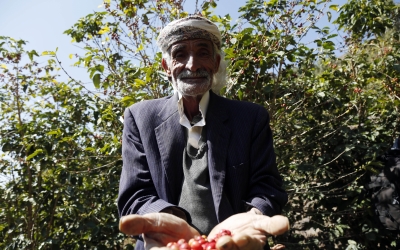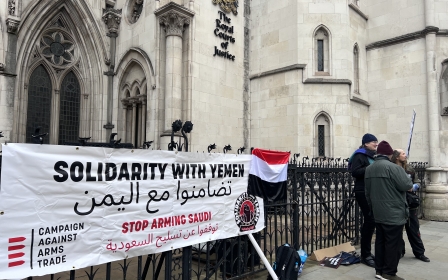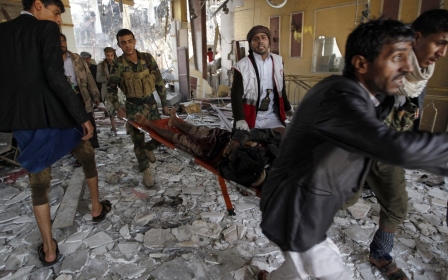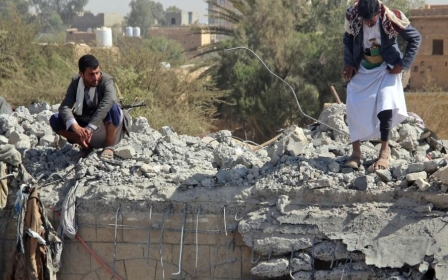Houthi tactics 'made it difficult' for Saudis to avoid war crimes in Yemen, court hears
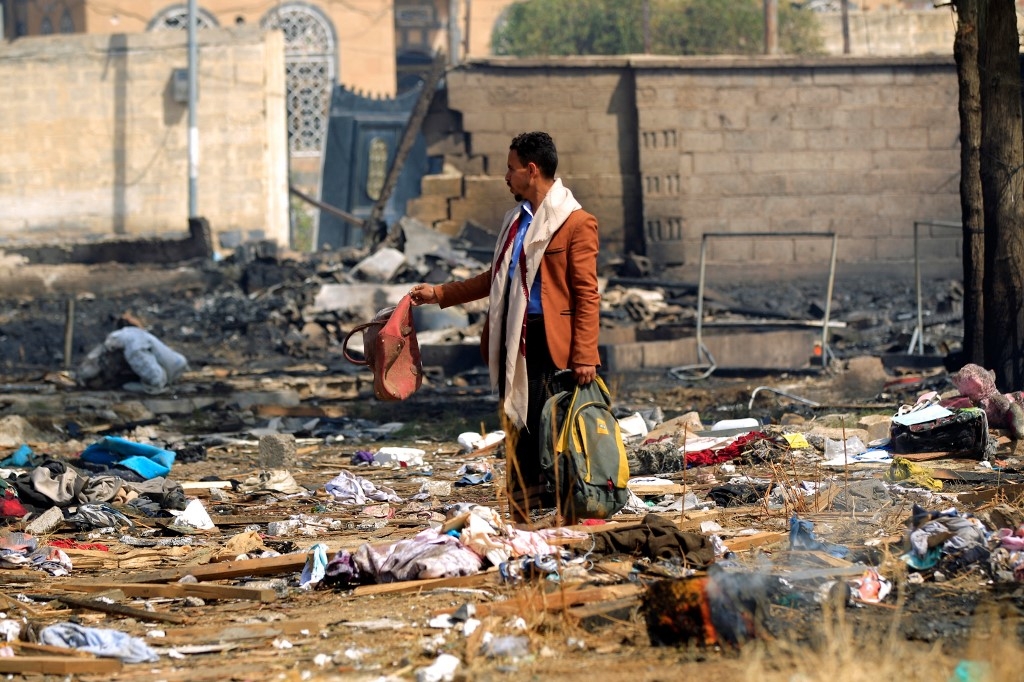
A lawyer for the British government told a London court on Wednesday that tactics employed by Houthi rebels had made it difficult for the Saudi-led coalition to adhere to international humanitarian law during the war in Yemen.
The comments came as a judicial review brought by the Campaign Against Arms Trade (CAAT) and Mwatana for Human Rights, challenging the UK's continued licensing of arms sales to Riyadh despite concerns about alleged Saudi war crimes in the eight-year conflict, entered its second day.
James Eadie, representing the British government, described the UK as a non-party to the war but said the UK helped Saudi Arabia with training on air operations and understanding international humanitarian law.
"Houthi tactics made it difficult [for Saudi Arabia] to operate within the principles of international humanitarian law," Eadie told the High Court.
"[They wear] no uniform, haven't any differentiation in their vehicles and deliberately use civilians and civilian infrastructure as shields."
New MEE newsletter: Jerusalem Dispatch
Sign up to get the latest insights and analysis on Israel-Palestine, alongside Turkey Unpacked and other MEE newsletters
Eadie added that the government was "better placed than NGOs" and UN expert panels to determine whether Riyadh adheres to international law.
"Unlike the [British] government, the UN and NGOs will not have knowledge of the general attitude and relevant diplomatic and military expertise needed to assess the facts and how they make a judgement," said Eadie.
But CAAT's lawyer, Ben Jaffey, hit back at Eadie's claim and noted that the UN panel of experts that Eadie questioned was comprised of prominent military experts, including a former British colonel who teaches international law at Westpoint University, and a Canadian professor who specialises in international law.
"In the submissions, there was slight criticism of the UN panels in relation to expertise relating to targeting... but these are people who are not unversed in military matters," said Jaffey.
Khashoggi's death did not stop UK arm sales
Eadie also told the court that the murder of Saudi journalist Jamal Khashoggi in October 2018 had been discussed in assessing whether arms sales to the kingdom should continue but was deemed irrelevant to the Saudis' conduct of the war in Yemen.
"The Khashoggi murder was taken into account and specifically considered, and a judgement was made that it does not undermine the overarching conclusions that had been reached about the Saudis' intention and capabilities of adhering to IHL within the conflict of Yemen," said Eadie.
Jaffey responded to Eadie's submissions by acknowledging that "errors and accidents happen in war... but international law always understood this. So the question is why - why are the errors occurring?"
He added: "Why are the targets not running through in their mind? The basic question required to be asked by international humanitarian law and required by [Saudi's] own rules of engagement."
The case continued in closed court on Wednesday afternoon.
According to Oxfam, the UK has licensed at least £7.9bn ($9.6bn) in arms to Saudi Arabia across 547 licences since 2015, including Tornado and Typhoon aircraft and bombs.
CAAT says the true value of arms sales could be more than £23bn (around $28bn) when additional "open licensees" are taken into account.
A previous court challenge by CAAT in 2019 forced the UK government to suspend arms sales. But after an internal review, sales resumed in 2021 on the basis that the breaches of humanitarian law were “isolated incidents”.
The UK government has recently refused to release information in response to freedom of information requests filed by Middle East Eye about arms sales to Saudi Arabia, following the coalition's 2016 bombing of a crowded funeral hall in Sanaa, one of the deadliest of the war.
Middle East Eye delivers independent and unrivalled coverage and analysis of the Middle East, North Africa and beyond. To learn more about republishing this content and the associated fees, please fill out this form. More about MEE can be found here.


